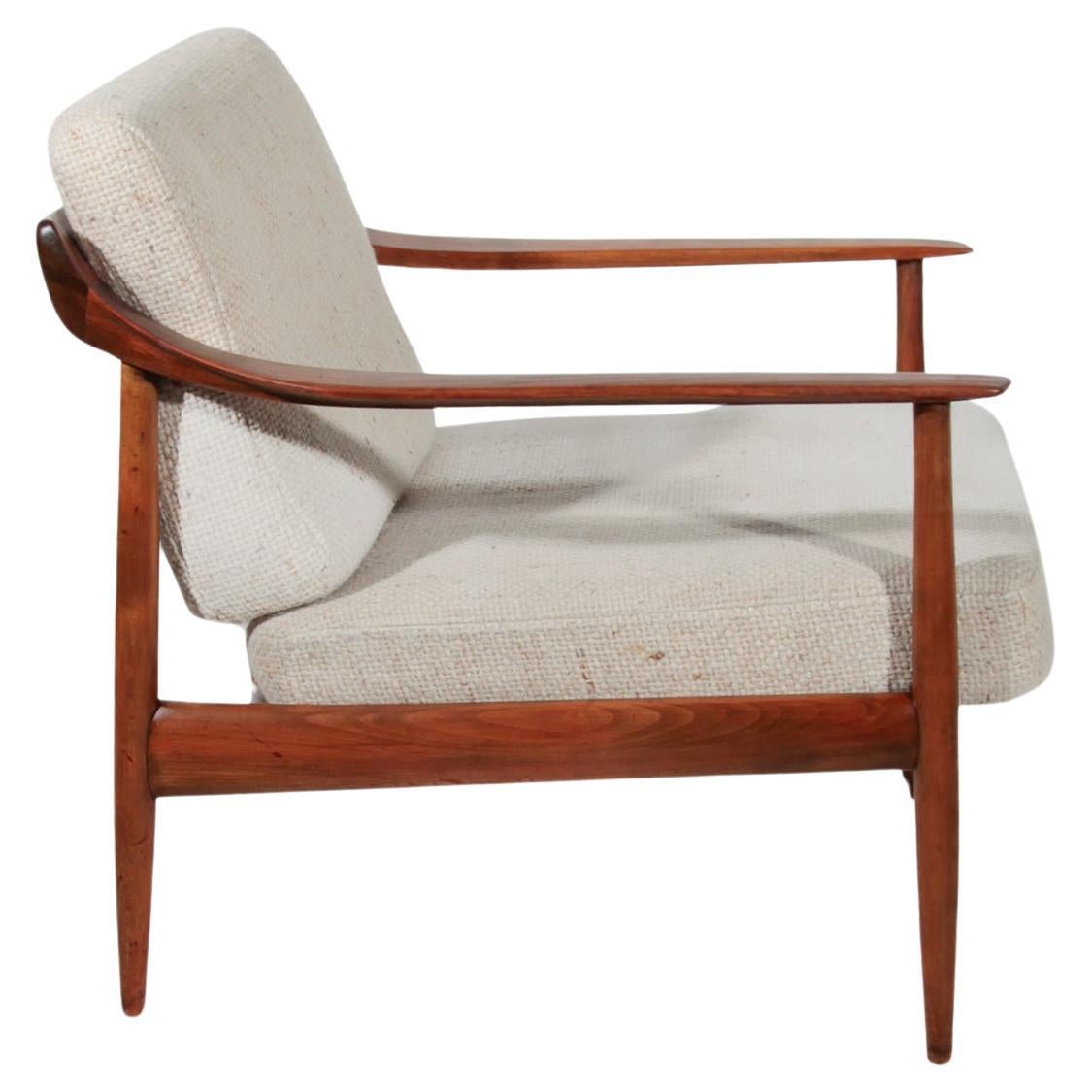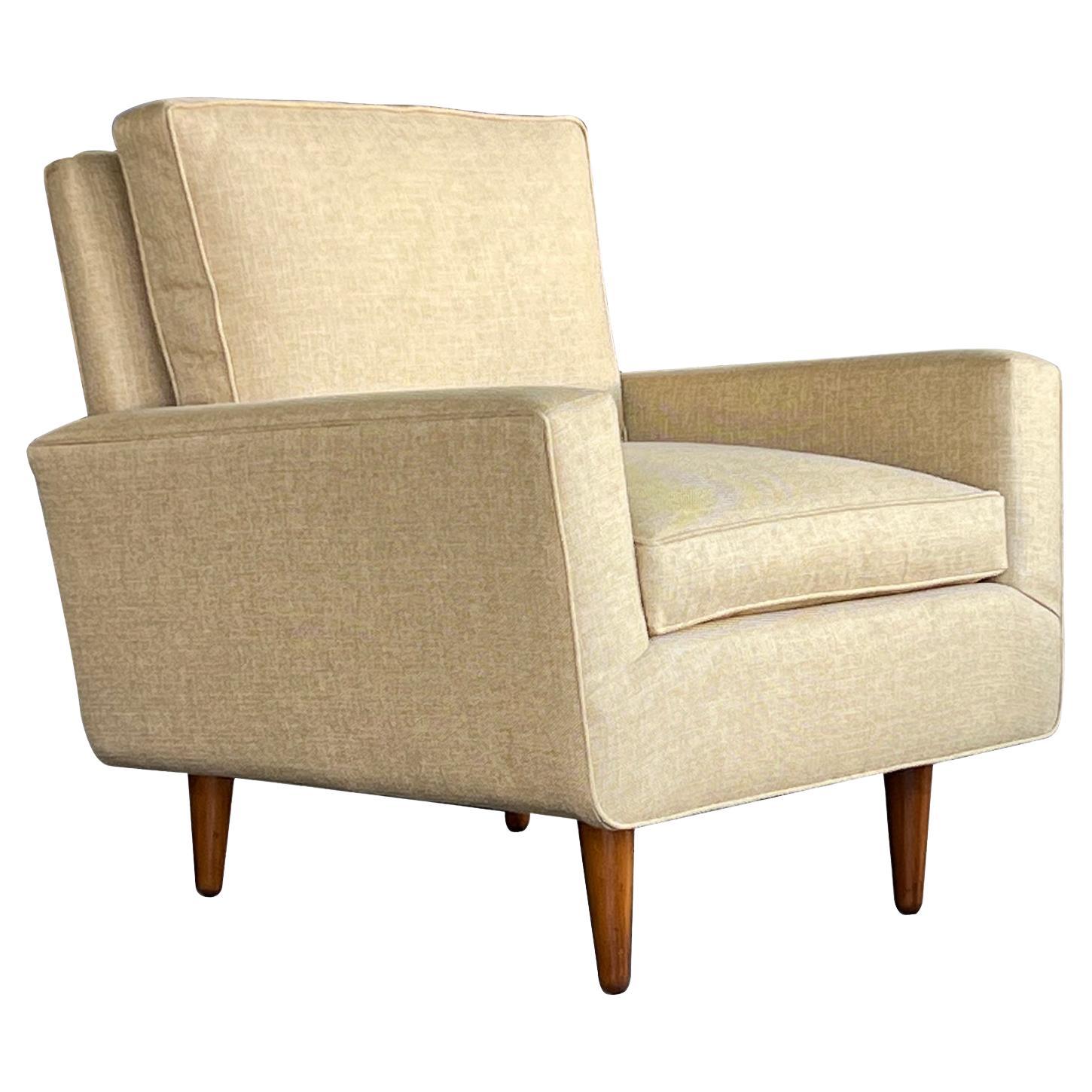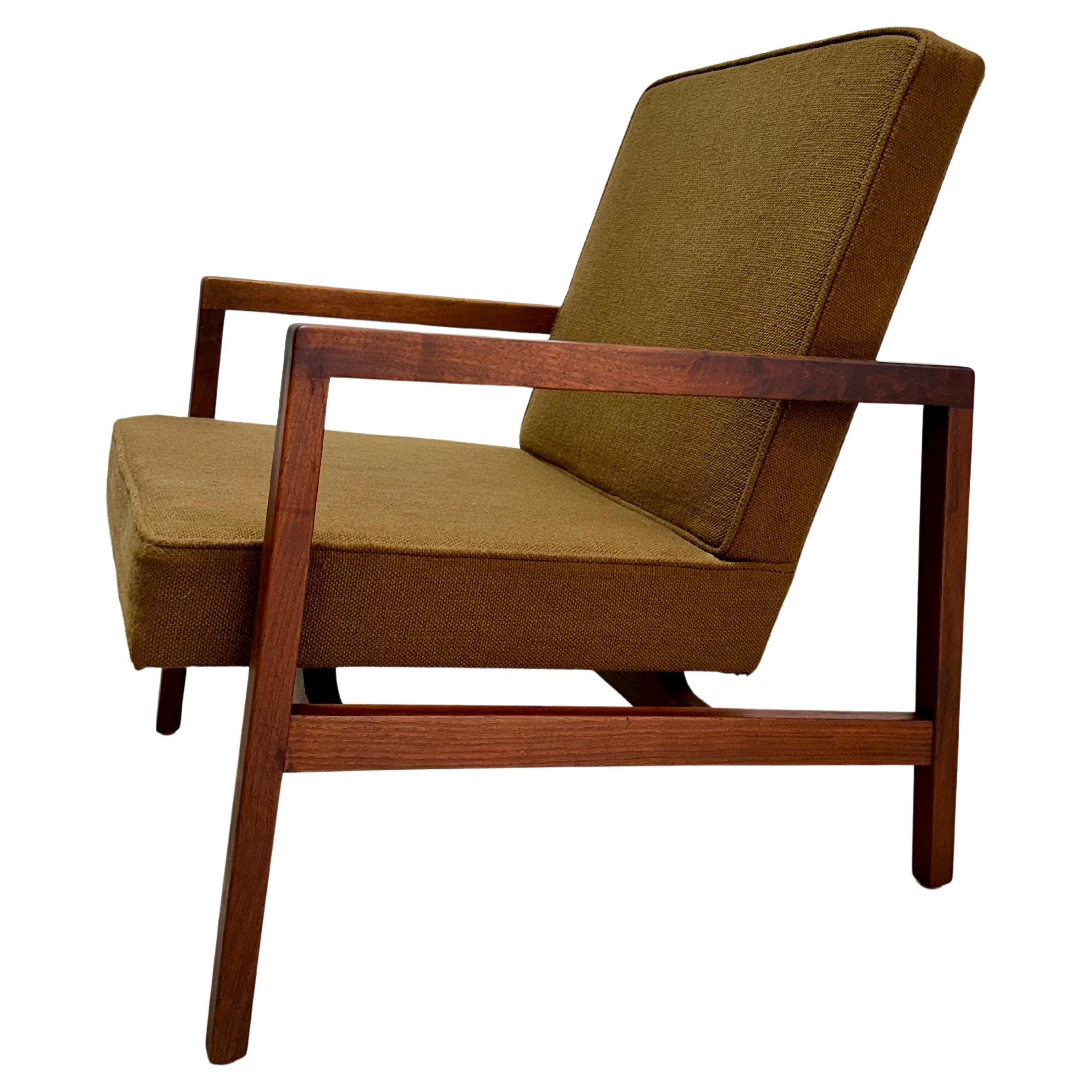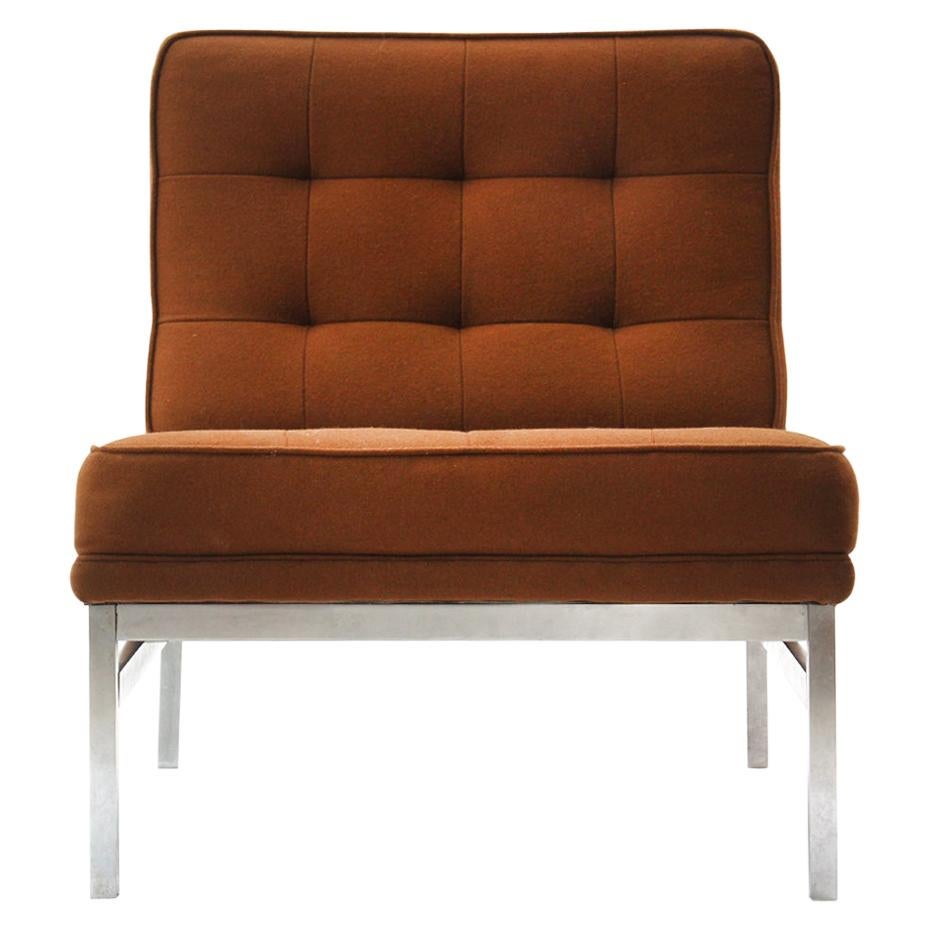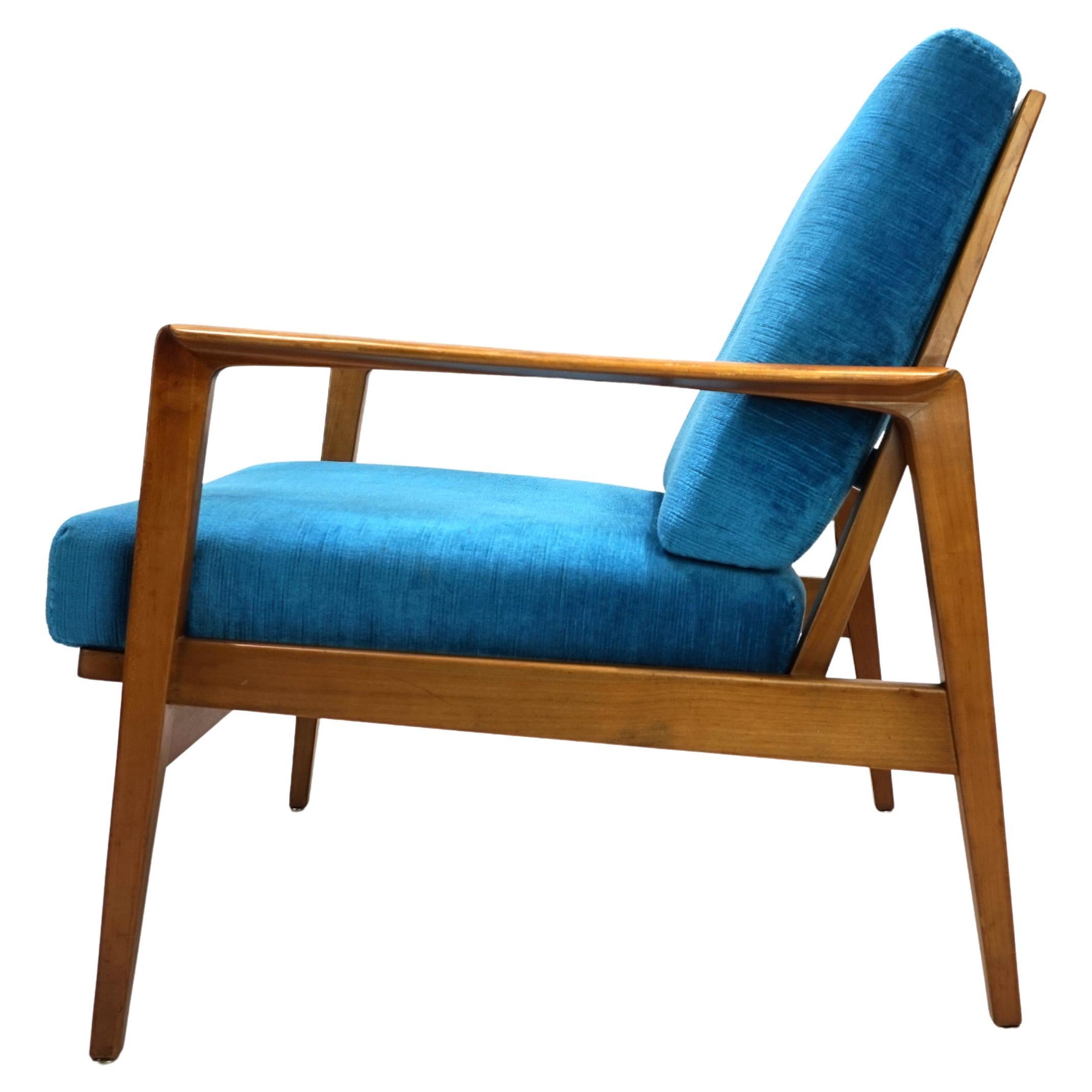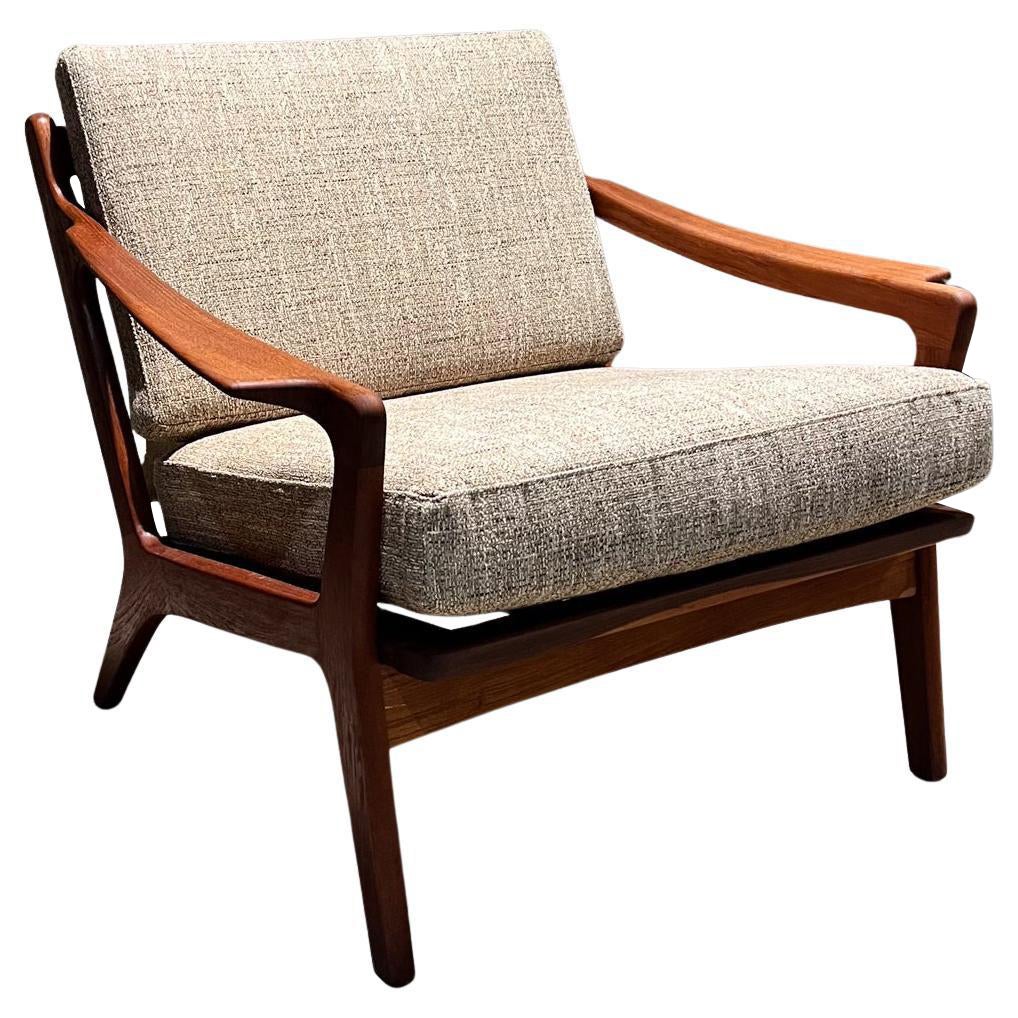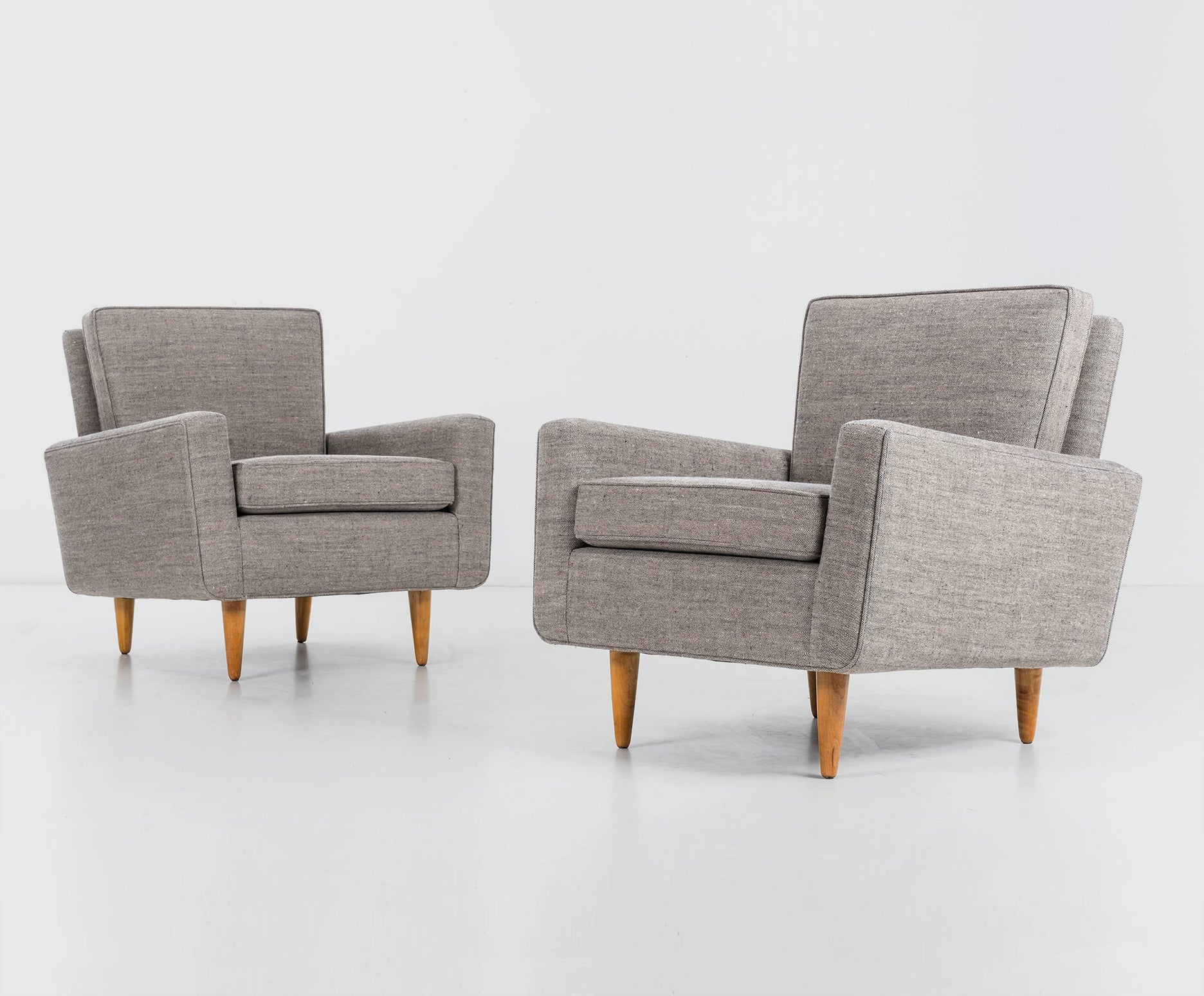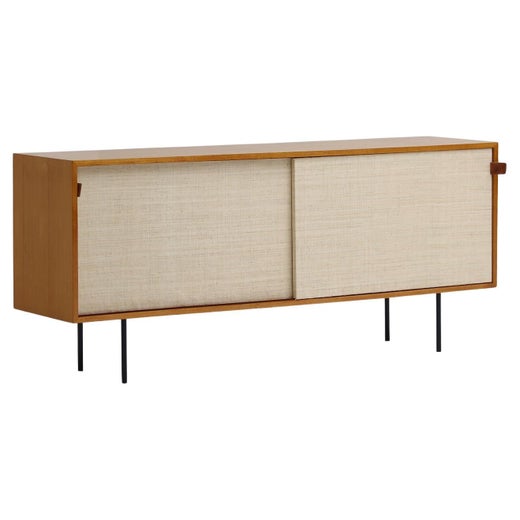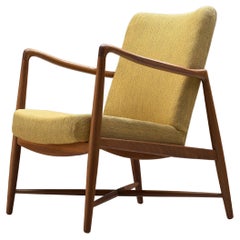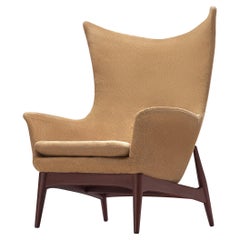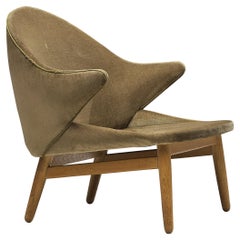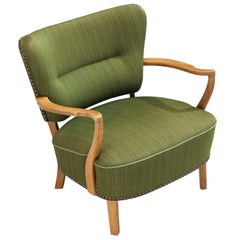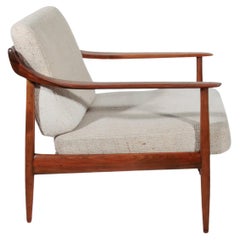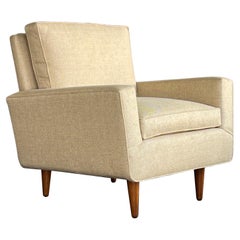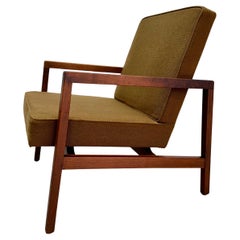Florence Knoll for Knoll International Lounge Chair in Teak
About the Item
- Creator:Knoll (Manufacturer),Florence Knoll (Designer)
- Design:Florence Knoll Lounge ChairLounge Series
- Dimensions:Height: 29.93 in (76 cm)Width: 23.63 in (60 cm)Depth: 30.71 in (78 cm)Seat Height: 15.16 in (38.5 cm)
- Style:Mid-Century Modern (Of the Period)
- Materials and Techniques:
- Place of Origin:
- Period:
- Date of Manufacture:1955
- Condition:Wear consistent with age and use. Every item Morentz offers is checked by our team of 30 craftspeople in our in-house workshop. Special restoration or reupholstery requests can be done. Check ‘About the item’ or ask our design specialists for detailed information on the condition.
- Seller Location:Waalwijk, NL
- Reference Number:Seller: 501093911stDibs: LU933132930582
Florence Knoll Lounge Chair
It doesn’t get more timeless or starkly modern than the boxy chrome-footed Florence Knoll lounge chair.
Designed in 1954 by Florence Knoll Bassett (1917–2019) for the legendary furniture manufacturer Knoll Inc. that she helped establish with her husband Hans Knoll, the chair is representative of all her signature gestures, from the sturdy construction to the button tufting, and like the rest of her work, it embodies the very essence of modernism.
In many ways, Knoll was destined to become a household name. Orphaned at a young age, she was enrolled at Kingswood School, part of the Cranbrook Academy of Art, which became home to many stars of mid-century modern design. She later flourished in her architecture studies with Bauhaus masters like Marcel Breuer and others. Knoll was a protégé of Ludwig Mies van der Rohe at Columbia University’s School of Architecture, and her lounge seating, with its clean architectural lines, takes cues from her mentor.
Deeply inspired by the Bauhaus and its belief in melding art with industrial techniques, Knoll revolutionized the workplace. “Every time you see Barcelona chairs and a table in a lobby, that’s her [influence],” Kathryn Hiesinger, a curator at the Philadelphia Museum of Art, told the New York Times.
When Knoll designed this chair as part of her lounge series, which included a sofa, she called it “meat and potatoes” furniture and believed she was merely filling a need. While there’s no disputing the utilitarian properties of her classic pieces, they’re geometrically striking objects. The Florence Knoll lounge chair — with its low seat height and simple profile — would work in any setting, and Knoll was equally versatile. It’s hard to imagine modernism without her.
Florence Knoll
Architect, furniture designer, interior designer, entrepreneur — Florence Knoll had a subtle but profound influence on the course of mid-century American modernism. Dedicated to functionality and organization, and never flamboyant, Knoll shaped the ethos of the postwar business world with her skillfully realized office plans and polished, efficient designs for sofas, credenzas, desks and other furnishings.
Knoll had perhaps the most thorough design education of any of her peers. Florence Schust was orphaned at age 12, and her guardian sent her to Kingswood, a girl’s boarding school that is part of the Cranbrook Educational Community in suburban Detroit. Her interest in design brought her to the attention of Eliel Saarinen, the Finnish architect and head of the Cranbrook Academy of Art.
Saarinen and his wife took the talented child under their wing, and she became close to their son, the future architect Eero Saarinen. While a student at the academy, Florence befriended artist-designer Harry Bertoia and Charles and Ray Eames. Later, she studied under three of the Bauhaus masters who emigrated to the United States. She worked as an apprentice in the Boston architectural offices of Walter Gropius and Marcel Breuer; Ludwig Mies van der Rohe taught her at the Illinois Institute of Technology.
In 1941, she met Hans Knoll, whose eponymous furniture company was just getting off the ground. They married in 1946, and her design sense and his business skills soon made Knoll Inc. a leading firm in its field. Florence signed up the younger Saarinen as a designer, and would develop pieces by Bertoia, Mies and the artist Isamu Noguchi.
Florence Knoll's main work came as head of the Knoll Planning Group, designing custom office interiors for clients such as IBM and CBS. The furniture she created for these spaces reflects her Bauhaus training: the pieces are pure functional design, exactingly built; their only ornament from the materials, such as wood and marble. Her innovations — the oval conference table, for example, conceived as a way to ensure clear sightlines among all seated at a meeting — were always in the service of practicality.
Since her retirement in 1965, Knoll received the National Medal of Arts, among other awards; in 2004 the Philadelphia Museum of Art mounted the exhibition “Florence Knoll: Defining Modern” — well deserved accolades for a strong, successful design and business pioneer. As demonstrated on these pages, the simplicity of Knoll’s furniture is her work’s great virtue: they fit into any interior design scheme.
Find vintage Florence Knoll sofas, benches, armchairs and other furniture on 1stDibs.
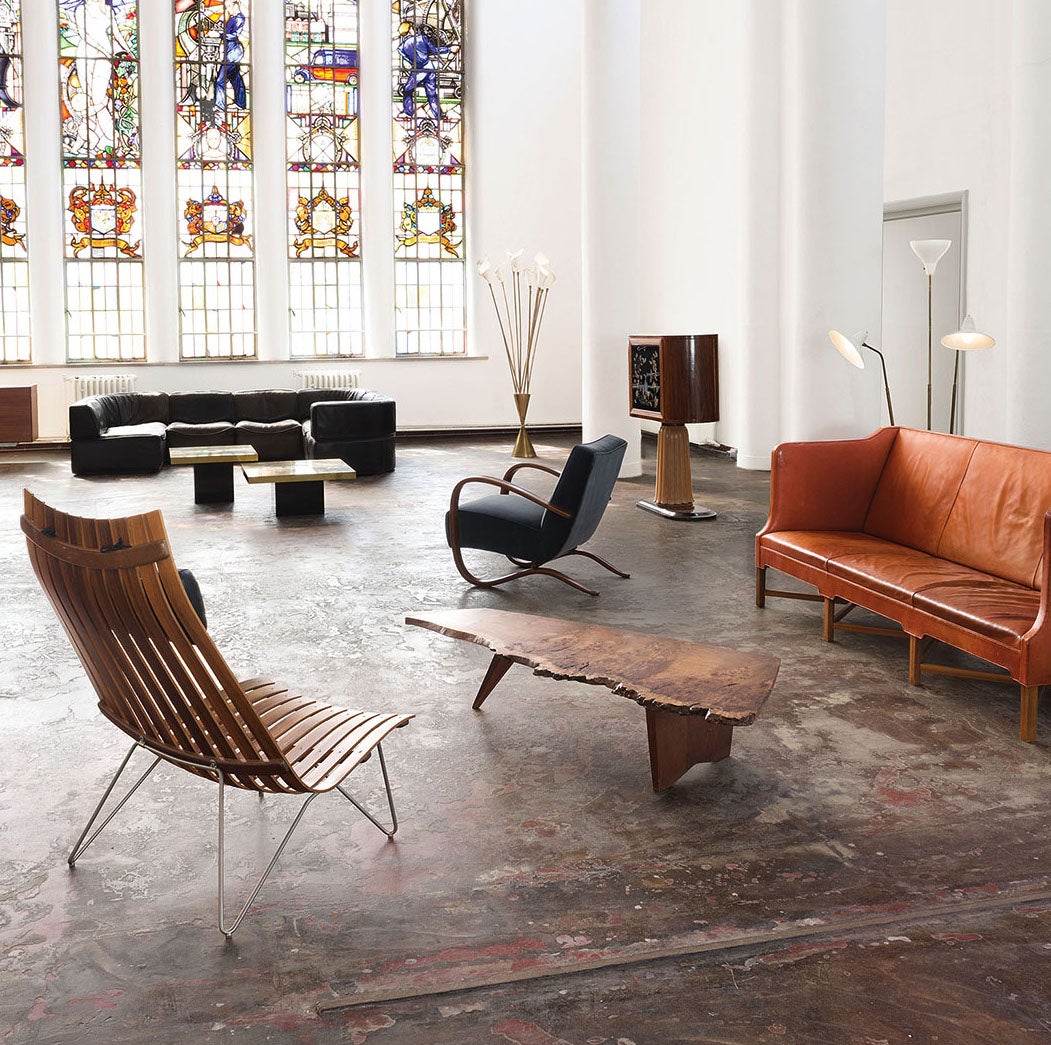
Established in 2006, Morentz has a team of approximately 55 restorers, upholsterers, interior advisers and art historians, making it a gallery, workshop and upholstery studio, all in one. Every day, a carefully selected array of 20th-century furniture arrives from all over the world at the firm’s warehouse, where the team thoroughly examines each piece to determine what, if any, work needs to be done. Whether that means new upholstery or a complete restoration, Morentz's aim is always to honor the designer’s intention while fulfilling the wishes of the client. The team is up to any challenge, from restoring a single piece to its original glory to furnishing a large-scale hotel project.
- ShippingRetrieving quote...Shipping from: Waalwijk, Netherlands
- Return Policy
More From This Seller
View AllVintage 1950s Danish Scandinavian Modern Armchairs
Fabric, Teak
Vintage 1960s Danish Scandinavian Modern Wingback Chairs
Fabric, Teak
Vintage 1950s Danish Scandinavian Modern Lounge Chairs
Fabric, Oak
Vintage 1950s Danish Scandinavian Modern Lounge Chairs
Fabric, Oak
Vintage 1940s Italian Mid-Century Modern Lounge Chairs
Fabric, Walnut
Vintage 1960s Danish Scandinavian Modern Armchairs
Fabric, Oak, Teak
You May Also Like
Vintage 1960s German Mid-Century Modern Lounge Chairs
Wool, Walnut
Vintage 1950s American Mid-Century Modern Armchairs
Upholstery
Mid-20th Century American Mid-Century Modern Lounge Chairs
Fabric, Walnut
Vintage 1950s American Mid-Century Modern Lounge Chairs
Steel
Vintage 1960s German Mid-Century Modern Lounge Chairs
Fabric, Nutwood
Vintage 1960s Danish Scandinavian Modern Armchairs
Fabric, Teak
